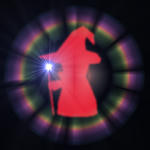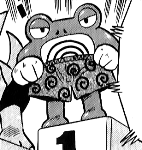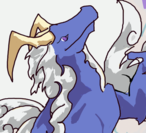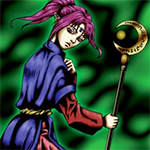HOW TO MANAGE DEVELOPMENT?
Posts
Looking for a brief idea on how you all manage feature creeps, scope, adding new features and etc during game development. And a general idea on the overall workflow for your projects.
Hoping to find lots inputs and discussions so that I can get a good feel for the norm. Working on a very ambitious project (for me) and often struggle with these things.
Thanks for reading.
Hoping to find lots inputs and discussions so that I can get a good feel for the norm. Working on a very ambitious project (for me) and often struggle with these things.
Thanks for reading.
Normally I just make things up as I go with no real direction or idea of what Im doing. In fact in the past I have started entire game projects by opening up my IDE and start coding without any idea of what Im actually making and slowly a game idea comes out of it.
But with my current main project(The Grimoire of worlds) that approach has made more problems than helped so I have restarted from scratch with mostly rewritten code and Im planning things out as best I can, Mostly in notepads. I plan out a feature and write out all the ins and outs of how it will work that way when I get to coding that section I have a good idea of what I need to add straight up.
But with my current main project(The Grimoire of worlds) that approach has made more problems than helped so I have restarted from scratch with mostly rewritten code and Im planning things out as best I can, Mostly in notepads. I plan out a feature and write out all the ins and outs of how it will work that way when I get to coding that section I have a good idea of what I need to add straight up.
There's too much advice, I'll try to give some that's been on the mind recently:
Don't give yourself time strict deadlines, if things change... everything else after it will probably change. A pretty good elaboration of that idea in this twitter thread.
I don't follow the above advice exactly but I typically open a notepad with short term goals (things I can do RIGHT NOW or by the end of today) and a Trello todo list with long term / ideas that are subject to change all the time. Depends on the project though, I have some spreadsheets to keep track of collectibles / bug fixes so I don't forget the stuff I already placed or fixed. The notepad docs are super temporary while the trello/googledocs is forever accessible.
Good names. When you have over 200+ maps, things will get really messy real quickly so you want to come up with good names and groups so you don't have to think what to refer to when clicking to the certain point. The editor I use has a search+find feature but you'll still want to come up with an easy to understand naming convention so don't just name the maps random names and organize them through groups. Have the area name within the name itself like "emCave_entrance". So if you type in "emCave" the search feature will show all the maps in the "Emerald Cave" area and "entrance" will denote its unique suffix from anything else in the Emerald Cave. Whatever make sense for your game to be laid out, the more open your game, the more crucial organization is.
STOP REMAKING ENTIRE AREAS/FEATURES I recommend only doing it once half way through development to tidy up the beginning of your game maybe. If the ideas aren't working out just pick one thing the game is doing well at (exploration/combat/story/set-pieces) and focus on that for the rest of development, accept the flaws or at least mitigate them from now on. There's always the next game. In which the beginning of development you should always figure out if the features you've implemented are going to work or something you want to actually work on. Treat your perfectionism as some kind of limited meter you can spend per game.
Worry about the middle last. I also recommend just making the final boss / ending sooner than later as a way to work backwards from (depends on the game). Sometimes it's worth using the existing game you have so far as a map itself. You can always fill up the middle with stuff that aren't as important. It's helpful to think of what is actually necessary to a completed game than just a vague notion of content. Most ending sequences in games are usually rushed because not enough time etc. but imagine if only the middle filler content was rushed? Something to think about.
Back up your shit look up what Source Control is. There's no excuse for losing work. The more time spent in development, the more valuable your work is gonna be. Imagine losing everything towards 90% completion??
Don't give yourself time strict deadlines, if things change... everything else after it will probably change. A pretty good elaboration of that idea in this twitter thread.
I don't follow the above advice exactly but I typically open a notepad with short term goals (things I can do RIGHT NOW or by the end of today) and a Trello todo list with long term / ideas that are subject to change all the time. Depends on the project though, I have some spreadsheets to keep track of collectibles / bug fixes so I don't forget the stuff I already placed or fixed. The notepad docs are super temporary while the trello/googledocs is forever accessible.
Good names. When you have over 200+ maps, things will get really messy real quickly so you want to come up with good names and groups so you don't have to think what to refer to when clicking to the certain point. The editor I use has a search+find feature but you'll still want to come up with an easy to understand naming convention so don't just name the maps random names and organize them through groups. Have the area name within the name itself like "emCave_entrance". So if you type in "emCave" the search feature will show all the maps in the "Emerald Cave" area and "entrance" will denote its unique suffix from anything else in the Emerald Cave. Whatever make sense for your game to be laid out, the more open your game, the more crucial organization is.
STOP REMAKING ENTIRE AREAS/FEATURES I recommend only doing it once half way through development to tidy up the beginning of your game maybe. If the ideas aren't working out just pick one thing the game is doing well at (exploration/combat/story/set-pieces) and focus on that for the rest of development, accept the flaws or at least mitigate them from now on. There's always the next game. In which the beginning of development you should always figure out if the features you've implemented are going to work or something you want to actually work on. Treat your perfectionism as some kind of limited meter you can spend per game.
Worry about the middle last. I also recommend just making the final boss / ending sooner than later as a way to work backwards from (depends on the game). Sometimes it's worth using the existing game you have so far as a map itself. You can always fill up the middle with stuff that aren't as important. It's helpful to think of what is actually necessary to a completed game than just a vague notion of content. Most ending sequences in games are usually rushed because not enough time etc. but imagine if only the middle filler content was rushed? Something to think about.
Back up your shit look up what Source Control is. There's no excuse for losing work. The more time spent in development, the more valuable your work is gonna be. Imagine losing everything towards 90% completion??
This is all I got:
https://rpgmaker.net/users/kentona/articles/?p=5
So you want to be a game developer?
A guide to GAM MAK
How To Procrastinate
I meant to write this article a year ago...
The Phases of GAM MAK
A short outline of the common phases of game making, in roughly the order you should be embarking upon them, and some advice on how to go about them.
Game Development Project Management using Spreadsheets
Being organized is almost as good as being talented
The PRO of PROCRASTINATION
A short thought dump on procrastination
https://rpgmaker.net/users/kentona/articles/?p=5
So you want to be a game developer?
A guide to GAM MAK
How To Procrastinate
I meant to write this article a year ago...
The Phases of GAM MAK
A short outline of the common phases of game making, in roughly the order you should be embarking upon them, and some advice on how to go about them.
Game Development Project Management using Spreadsheets
Being organized is almost as good as being talented
The PRO of PROCRASTINATION
A short thought dump on procrastination
LockeZ

I'd really like to get rid of LockeZ. His play style is way too unpredictable. He's always like this too. If he ran a country, he'd just kill and imprison people at random until crime stopped.
5958
Well UOSSMUD is an online multiplayer game that was "released" 22 years ago but is still getting new features added, like how MMORPGs or mobile games keep getting new features. I mean it's literally just a tiny MMORPG with a text-based interface instead of a graphical one. And every time I make an RPG Maker game by myself, it takes ten years due to a combination of scope creep, procrastination, and perfectionism. So I feel like if you're planning to release a complete game and then not have constant updates for the next decade, I have no useful input.
Now, if you want to know more about releasing constant updates to an existing online game, I can certainly share my experiences. But I probably need a more specific question than just "How do you make games?"
Now, if you want to know more about releasing constant updates to an existing online game, I can certainly share my experiences. But I probably need a more specific question than just "How do you make games?"
Here are some tips that I use for design and workflow management.
1. Make some design documentation. Start with a high level overview of what you want, the gameplay, story, combat system, other core systems, stuff you want in your game, even if you're not 100% sure, etc. Then, here is the tricky part: you'll need to break everything into smaller pieces. It can be harder than it sounds, but break it down to smaller pieces, and then organize it into phases. Add as much detail to it as you can afterwards. Document technical design of the more complex systems, etc (it is easy to forget stuff if you don't work on it for a while). The more details you have, the better. Update the documentation as things change along the development process. For me, I use OneNote to get this done.
2. Use some kind of workflow management board. For me, I use Trello. How it works is that you can put details into cards on different columns (based off stuff you want to get done from your design documentation and what phase you're on), and the workflow moves from left to right (you can easily move cards around by dragging and dropping). Anything you are currently working on would go into a "In Progress" column or something like that. You update the card as you go, and you just work on it until you finish, then move to card to a "Completed" column, rinse and repeat. It's a good way to keep on track with your work when you do this.. There are other types of kanban boards you can use, and Trello is a decent free one.
1. Make some design documentation. Start with a high level overview of what you want, the gameplay, story, combat system, other core systems, stuff you want in your game, even if you're not 100% sure, etc. Then, here is the tricky part: you'll need to break everything into smaller pieces. It can be harder than it sounds, but break it down to smaller pieces, and then organize it into phases. Add as much detail to it as you can afterwards. Document technical design of the more complex systems, etc (it is easy to forget stuff if you don't work on it for a while). The more details you have, the better. Update the documentation as things change along the development process. For me, I use OneNote to get this done.
2. Use some kind of workflow management board. For me, I use Trello. How it works is that you can put details into cards on different columns (based off stuff you want to get done from your design documentation and what phase you're on), and the workflow moves from left to right (you can easily move cards around by dragging and dropping). Anything you are currently working on would go into a "In Progress" column or something like that. You update the card as you go, and you just work on it until you finish, then move to card to a "Completed" column, rinse and repeat. It's a good way to keep on track with your work when you do this.. There are other types of kanban boards you can use, and Trello is a decent free one.
Sooz


They told me I was mad when I said I was going to create a spidertable. Who’s laughing now!!!
5354
Phrases to keep in mind while working:
"Don't let the perfect be the enemy of the good"
"Adequate and published beats perfect and unfinished every time."
-You will never make a perfect work. Get it to the point where it's acceptably OK and move on. You can always polish later if you need to; eternal, perfectionist futzing is the downfall of SO MANY works.
"Kill your babies"
-No matter how much you love an element, no matter how much work you spent on it, if it's not working out, REMOVE IT IMMEDIATELY AND MERICLESSLY.
"How does this contribute to the themes of the work?"
"Does a player NEED this to get what's going on?"
-You should have at least a vague idea what you're going for with gameplay, plot, and atmosphere. Any time you have a Really Really Great Idea-- some fun gameplay gimmick, a new scene, a fantastic character-- think really hard about what it really contributes. If it's not directly tied into themes and totally narratively necessary, drop that shit immediately. You can always use it later.
Generally the only way to combat scope creep and futzing is to be completely merciless toward your work: your goal is having something people can play, and that's not going to happen if you let your dreams take over. If you can't quite manage total heartlessness, then here's a final phrase for you:
"I can always do it after I finish the first version."
If it's REALLY meant to be, then you'll be prepared to do the work to integrate it even after you've finally finished everything and are sick of it all and OH GOD PLEASE LET ME DO ANYTHING THAT IS NOT THIS GAME I HATE IT I HATE VIDEO GAMES I'M GOING TO GO BE A LUMBERJACK NOW.
Nine times out of ten, it wasn't really all that important to the game and/or it's something you can use in its own thing.
"Don't let the perfect be the enemy of the good"
"Adequate and published beats perfect and unfinished every time."
-You will never make a perfect work. Get it to the point where it's acceptably OK and move on. You can always polish later if you need to; eternal, perfectionist futzing is the downfall of SO MANY works.
"Kill your babies"
-No matter how much you love an element, no matter how much work you spent on it, if it's not working out, REMOVE IT IMMEDIATELY AND MERICLESSLY.
"How does this contribute to the themes of the work?"
"Does a player NEED this to get what's going on?"
-You should have at least a vague idea what you're going for with gameplay, plot, and atmosphere. Any time you have a Really Really Great Idea-- some fun gameplay gimmick, a new scene, a fantastic character-- think really hard about what it really contributes. If it's not directly tied into themes and totally narratively necessary, drop that shit immediately. You can always use it later.
Generally the only way to combat scope creep and futzing is to be completely merciless toward your work: your goal is having something people can play, and that's not going to happen if you let your dreams take over. If you can't quite manage total heartlessness, then here's a final phrase for you:
"I can always do it after I finish the first version."
If it's REALLY meant to be, then you'll be prepared to do the work to integrate it even after you've finally finished everything and are sick of it all and OH GOD PLEASE LET ME DO ANYTHING THAT IS NOT THIS GAME I HATE IT I HATE VIDEO GAMES I'M GOING TO GO BE A LUMBERJACK NOW.
Nine times out of ten, it wasn't really all that important to the game and/or it's something you can use in its own thing.
Im a weirdo and plan 90% of whats in my games on paper first. Menus, enemies, maps, event chains, pretty much the works, its all there before I begin. About the only thing I do on the fly is the character dialogue.
Game design docs come in handy, especially if you take some time away from the game.
Just don’t put TOO MUCH work into them. There are whole games where I did more work on the design doc that’s the actually project. Guess you can end up how that project ended (spoilers: it got dropped)
Just don’t put TOO MUCH work into them. There are whole games where I did more work on the design doc that’s the actually project. Guess you can end up how that project ended (spoilers: it got dropped)
For me, everything starts with an idea and some notes. During development, I get new ideas and I note them to sort things out later on. A mindmap on what you plan to do can help a lot. It makes things easier to track where you want to go with your game.
Sooz


They told me I was mad when I said I was going to create a spidertable. Who’s laughing now!!!
5354
author=visitorsfromdreams
Im a weirdo and plan 90% of whats in my games on paper first. Menus, enemies, maps, event chains, pretty much the works, its all there before I begin. About the only thing I do on the fly is the character dialogue.
Paper planning is really underrated. There's something about free doodling on paper that gets ideas flowing in ways that computer stuff generally doesn't. (Maybe free doodling on an art program; IDK I haven't tried it.)
author=Soozauthor=visitorsfromdreamsPaper planning is really underrated. There's something about free doodling on paper that gets ideas flowing in ways that computer stuff generally doesn't. (Maybe free doodling on an art program; IDK I haven't tried it.)
Im a weirdo and plan 90% of whats in my games on paper first. Menus, enemies, maps, event chains, pretty much the works, its all there before I begin. About the only thing I do on the fly is the character dialogue.
I tend to do UI mock ups on paper, then digital ones in Photoshop so I can slide things around to see how they might really work.
This repeats a lot of what's been said, but this is pretty neat.
https://www.thewakingcloak.com/post/183155547994/on-creative-burnout-and-how-to-get-stuff-done
Doodling on art program is nice when you want to stream/do things with other remote peeps, but paper has just the nice crunchy cozy feel to it that can't be beat. That, and crossed out things remain forever.
Keep things to do bite-sized and it's far easier to do them mindlessly.
As for combating feature creep... if it's your direction, well, FIRST STEP: KNOW and KEEP IN MIND that you like feature creep when you do things.
Every feature idea that pops up, just put it on a list, do what you originally planned, and then look over that list again after everything is done. Things we put on lists tend to occupy our mind less - which is good. Ironically, great for forgetting about things as well (because you know where to find that sort of info now).
This makes new ideas stretch-goals, not core features. The core features you should already have planned way earlier, and if not.. well, pick two and be done.
I haven't done anything ambitious, but I always liked having two separate idea lists of basically "this is the thing, these are the endings" + "add this if you have time and motivation left over". A lot of the extra things I can't be bothered to do, and it feels great to be done, anyway. So what if I could've added more? I didn't need to. It's fine, it's good, and it's done. What's done is done. I am all for typo fixes and such, but I rarely ever touch anything I slapped the done label onto.
The other thing I like to do is just keep specific tasks for specific moods. When I am writing papers I will write short flowcharts at certain times, write out content at other times (adding rough "CITE THE BLUE BOOK HERE" notes), and I will format and cite properly when my creativity is rock bottom : D
It's messy but will keep me working far more when I focus on it. *sighs* speaking of, yeah no. Not today. Ok, fine. I will do some more on the one I am on. I need some new reading material anyhow.
https://www.thewakingcloak.com/post/183155547994/on-creative-burnout-and-how-to-get-stuff-done
Doodling on art program is nice when you want to stream/do things with other remote peeps, but paper has just the nice crunchy cozy feel to it that can't be beat. That, and crossed out things remain forever.
Keep things to do bite-sized and it's far easier to do them mindlessly.
As for combating feature creep... if it's your direction, well, FIRST STEP: KNOW and KEEP IN MIND that you like feature creep when you do things.
Every feature idea that pops up, just put it on a list, do what you originally planned, and then look over that list again after everything is done. Things we put on lists tend to occupy our mind less - which is good. Ironically, great for forgetting about things as well (because you know where to find that sort of info now).
This makes new ideas stretch-goals, not core features. The core features you should already have planned way earlier, and if not.. well, pick two and be done.
I haven't done anything ambitious, but I always liked having two separate idea lists of basically "this is the thing, these are the endings" + "add this if you have time and motivation left over". A lot of the extra things I can't be bothered to do, and it feels great to be done, anyway. So what if I could've added more? I didn't need to. It's fine, it's good, and it's done. What's done is done. I am all for typo fixes and such, but I rarely ever touch anything I slapped the done label onto.
The other thing I like to do is just keep specific tasks for specific moods. When I am writing papers I will write short flowcharts at certain times, write out content at other times (adding rough "CITE THE BLUE BOOK HERE" notes), and I will format and cite properly when my creativity is rock bottom : D
It's messy but will keep me working far more when I focus on it. *sighs* speaking of, yeah no. Not today. Ok, fine. I will do some more on the one I am on. I need some new reading material anyhow.
I heard that when writing a story you need to know how it ends.
Once you know that then you can write the beginning and middle.
Maybe this is why GOT failed.
Sooz


They told me I was mad when I said I was going to create a spidertable. Who’s laughing now!!!
5354
author=kory_toombs
I heard that when writing a story you need to know how it ends.
Once you know that then you can write the beginning and middle.
Maybe this is why GOT failed.
GoT failed because the writers were really looking forward to doing anything else. And kind of sucked. :V
But yeah, having an idea what you're aiming for is extremely helpful in writing. Whether you're into major planning or just improvising, keeping your mind on where everything needs to end up narratively is vital. It doesn't need to be a particular detailed scene, and the superficial stuff can change to suit whatever weird mutations happen on the way; what you need is an idea of what needs to happen to have the story be Done.
Knowing the ending in advance helps in two ways:
1) Keeps you from going too far off track on fun tangents, because you can always sit back and ask, "How is this getting me toward the end of the story?"
1b) Lets you incorporate those fun tangents into the narrative if you really like them, because you can ask, "How can I force this to get me toward the end of the story?"
2) You'll always have a general idea where you need things to go, so you can avoid the usual pitfalls of writer's block.
author=Soozauthor=visitorsfromdreamsPaper planning is really underrated. There's something about free doodling on paper that gets ideas flowing in ways that computer stuff generally doesn't. (Maybe free doodling on an art program; IDK I haven't tried it.)
Im a weirdo and plan 90% of whats in my games on paper first. Menus, enemies, maps, event chains, pretty much the works, its all there before I begin. About the only thing I do on the fly is the character dialogue.
I’ve come up with some of my best ideas (in my opinion) by writing down ideas in the corner of my notebook. I should have probably been paying attention in Calc lol.
Red_Nova
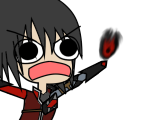
Sir Redd of Novus: He who made Prayer of the Faithless that one time, and that was pretty dang rad! :D
9192
Schedule time to take breaks. If you're working on a big game, then chances are you're gonna be at it for a good long while. If you have a huge laundry list of tasks that need doing (and believe me, you will), the desire to keep working can creep up on you and shut out other responsibilities before you know it. Scheduling time for a clean and total disconnect from ANYTHING game development related will refresh your mind and creative drive, and will lead to far fewer mistakes that you'd have to waste more time cutting and reworking.
The scary part is that it's VERY hard to recognize when you need time off. That's why it's best to block out days ahead of time to take your breaks. The more prominent you notice your exhaustion, the harder it can be to break away if you're really deep in development.
The scary part is that it's VERY hard to recognize when you need time off. That's why it's best to block out days ahead of time to take your breaks. The more prominent you notice your exhaustion, the harder it can be to break away if you're really deep in development.
Sooz


They told me I was mad when I said I was going to create a spidertable. Who’s laughing now!!!
5354
author=Red_Nova
Schedule time to take breaks.
Heed this man's words! Burnout is the enemy of all creative endeavors. Despite what shitty tech companies tell you, you cannot maintain a constant output of stuff. Sometimes you at least need a dang break to play some video games.













